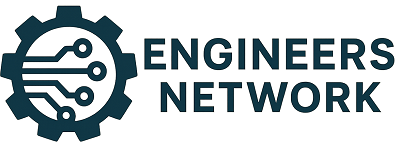When employers run background checks on applicants, they seek more than just criminal records. Screenings may also include:
- Verification of education and employment
- Searches of the sex offender registry
- Credential verification
Some screenings, such as professional reference verification and lie detector tests, may require consent from the candidate. Disclosure, notification, and legal requirements vary by state.
Employment History
In addition to criminal records, a background check on prospective new hires often include employment verifications. It allows an employer to confirm that the information provided by a candidate about their work history is accurate. Employment verification is essential, especially for roles requiring a specific education or licensing level. These verifications help employers avoid hiring candidates who may not have the credentials or clearances they need to do the job.
An employment history report includes the following:
- The names of companies where a candidate has worked.
- Their positions at those businesses.
- The dates that they held each position.
Depending on the industry and applicable laws, a background check may verify internships and other unpaid work. The law allows employers to ask about these types of jobs.
Driver’s License
A driver’s license check should be included in the background screening process if your company employs drivers or transports passengers. The results of this check will include the applicant’s most recent driver’s license status and any restrictions or disciplinary actions that have been applied. Driver’s licenses are government-issued authorizations for an individual to operate motorized vehicles on public roads and are typically plastic and credit card size. The orientation of a driver’s license varies by state; for example, the vertical orientation of licenses used by individuals under age 21 is used to verify their age, as opposed to the horizontal orientation of a standard license. Enhanced licenses, which combine the specifications of a passport card with driving privileges, are also available.
Social Media
Employers should also request public social media profiles and information for the most comprehensive screening possible. It is essential for roles that require specific qualifications and specialized education, and it can help ensure that a candidate has kept everything relevant to their employment. Medical checks can also be conducted, but these should be carefully done, as it is illegal to discriminate based on health.
Education Verification
A candidate’s education is integral to the screening process because it shows their credentials and whether they are qualified for your position. A background check company will contact the school or university to verify an applicant’s academic history. It includes dates of attendance and degrees earned. If you have positions requiring professional licenses, this can be verified by checking the governing body’s database. Additionally, if the candidate attended school abroad, this can be confirmed. It can help identify candidates who have falsified their education credentials or age. It is a common practice and should be taken into consideration by employers. The more accurate your hiring information, the less risk you will take on bad hires.
Criminal Record Check
Criminal record searches are the cornerstone of most pre-employment screenings. Criminal records searches examine various court records to report an applicant’s criminal history, including arrests and convictions. They can also include charges that were acquitted, dismissed, or sealed. Other background checks include credit checks for roles with fiscal responsibility, driving records (MVR) for positions involving driving, and education verification to confirm the accuracy of a candidate’s educational qualifications and credentials. These reports can also reveal professional licenses and certifications.




Leave a Reply